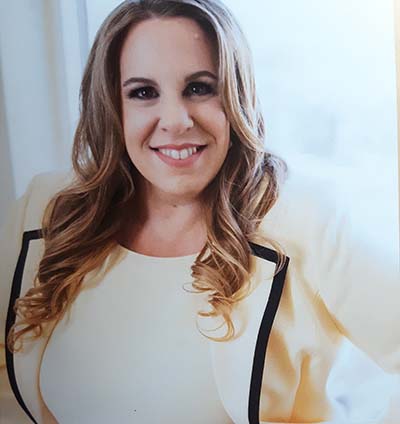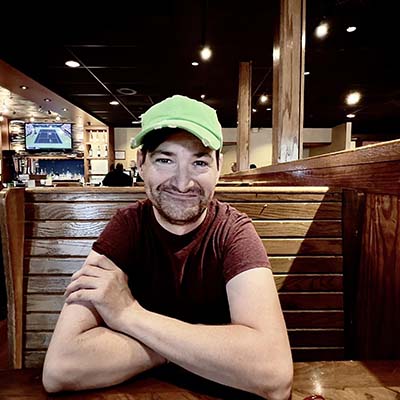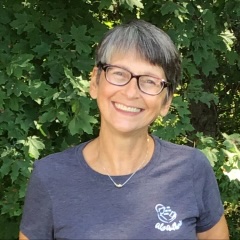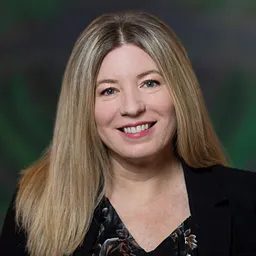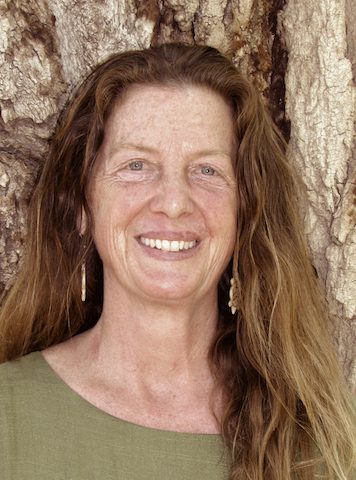Mastering Real Estate Cycles with Scott Scherer
Introduction
In this episode of Meet the Expert with Elliot Kallen, we explore the dynamic world of Real Estate cycles, focusing on the investment opportunities and challenges of private real Estate deals. Elliot Kallen sits down with Scott Scherer of Shopoff Realty Investments, a firm with over $4 billion in transactions, to discuss innovative approaches to real estate Investing, including mall redevelopment, housing shortages, and tax-efficient strategies.
Watch the Episode Here
Understanding Public vs. Private Real Estate Investments
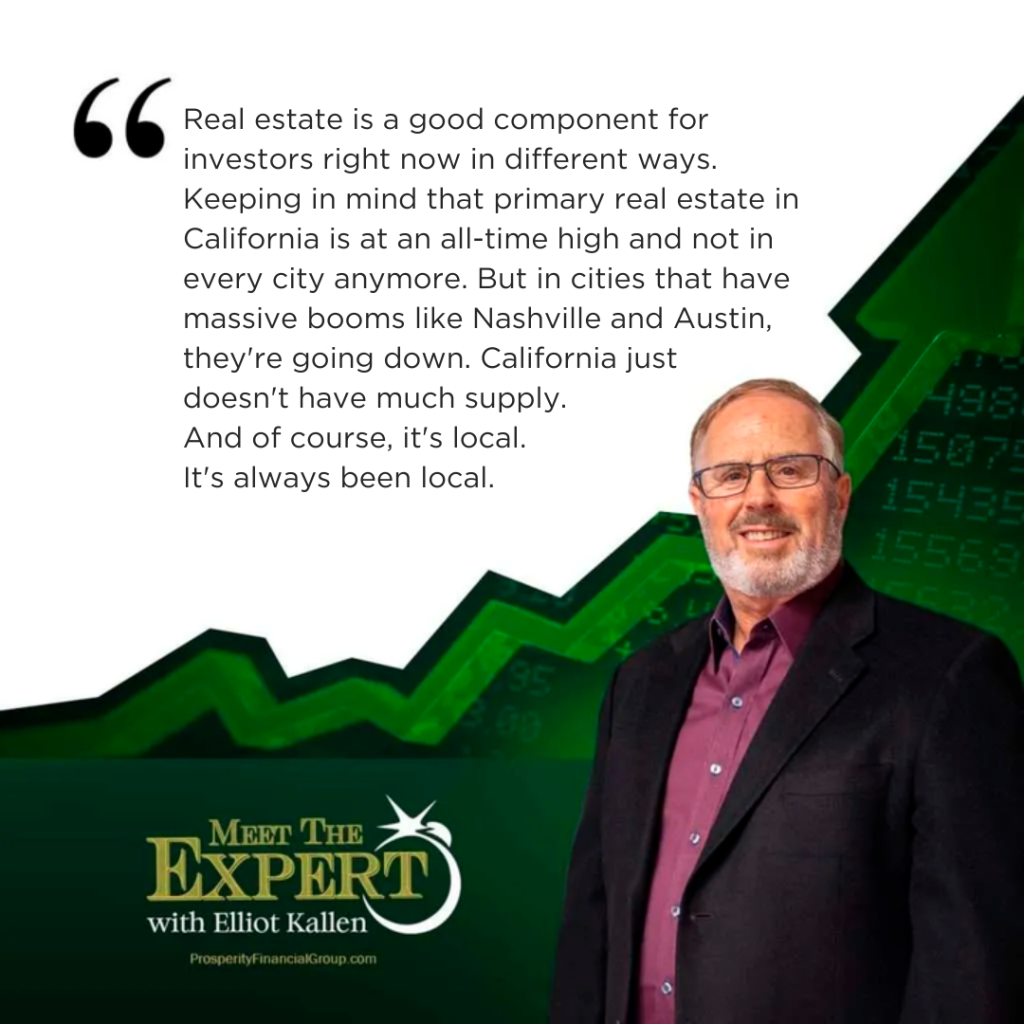
Elliot Kallen: “What’s the difference between public REITs, private REITs, and what you do?”
Scott Scherer: Public REITs (Real Estate Investment Trusts) are traded on the stock market and are subject to daily fluctuations driven by supply and demand, much like stocks. Private REITs operate off-market and pool investor Money into a trust managed by a sponsor.
At Shopoff Realty Investments, we focus on individual real estate deals. These involve acquiring underutilized assets, improving or repurposing them, and selling them at a premium. For example:
- Partnering with institutional investors like Invesco.
- Reserving equity for Retail advisors and their clients, providing access to institutional-style investments on a deal-by-deal basis.
Key Takeaway: Shopoff’s strategy allows investors to participate in large-scale, high-quality real estate deals without the long lock-up periods common in traditional private REITs.
Mall Redevelopment: Breathing Life into Dead Assets
Elliot Kallen: “What’s your approach to redeveloping assets like the Stone Ridge Mall?”
Scott Scherer: Malls are often underutilized assets. At Stone Ridge Mall, for example, we:
- Acquired the parking lot and Nordstrom building after the retailer vacated.
- Plan to demolish and repurpose the space into a 487-unit apartment complex with parks and parking.
- Focused on areas with high demand for housing, excellent infrastructure, and access to transportation, such as the nearby BART station and major freeways.
Insight: By turning outdated retail spaces into housing, Shopoff aligns with market demand while benefiting local communities.
Real Estate Cycles: Staying Agile

Scott Scherer:
Real estate cycles are key to our strategy. For example:
- Past Cycles: Overbuilt strip malls have been repurposed into residential housing.
- Current Trends: Industrial real estate, such as a million-square-foot logistics project in Palm Springs, is in high demand due to its utility for E-Commerce and distribution.
We focus on:
- Acquiring assets at a discount.
- Adding value through entitlement, zoning, and redevelopment.
- Selling within 2-3 years, avoiding long-term lock-ups.
Local Challenges: Making High-Risk Areas Work
Elliot Kallen: “How do you overcome challenges in areas like Richmond, California?”
Scott Scherer: Collaboration with local municipalities is critical. In Richmond, we’re developing 4,500 residential units with parks and retail, adjacent to Berkeley and close to the ferry for easy commutes. By integrating housing, amenities, and jobs, we aim to uplift the community while addressing housing shortages.
Pro Tip: Success in real estate often depends on micro-market trends, not just broader regional statistics.
Tax Strategies: Maximizing Gains in Real Estate Cycles
1031 Exchanges
Scott Scherer: Investors can defer capital gains taxes by rolling proceeds from a property sale into another qualifying property. This strategy helps real estate investors maintain momentum without tax penalties.

Qualified Opportunity Zones (QOZs)
A unique option introduced in the 2017 tax reform:
- Benefits: Defer capital gains taxes until 2027 and pay no taxes on new gains if the investment is held for 10 years.
- Example: We’re developing a hotel and casino on the Las Vegas Strip within an Opportunity Zone, offering significant tax advantages while generating income.
Elliot Kallen: “Opportunity Zones are a great idea for investors 50-55, but may be less attractive for older clients due to the 10-year commitment.”
Why Shopoff Realty?
Customized Opportunities: Investors can choose specific projects, such as a coastal development in Southern California or a mall redevelopment in Pleasanton, rather than investing in a blind pool.
Shorter Time Horizons: Average project duration is 2.9 years, compared to the typical 7-10 years for private REITs.
Diverse Asset Classes: From multifamily housing to industrial logistics spaces, Shopoff adapts to market trends.
Contact Information
If you’re interested in exploring real estate investment opportunities, reach out to:
- Elliot Kallen: Elliot@prosperityfinancialgroup.com or 925-314-8503.
Closing Thoughts
Real estate cycles, tax strategies, and innovative redevelopment projects create significant opportunities for savvy investors. Shopoff Realty Investments stands out by offering institutional-quality deals with flexibility and transparency.
Ready to explore how real estate fits into your portfolio? Contact Elliot Kallen today for a personalized consultation.
Full Transcript
Elliot Kallen: Good morning. Good afternoon, everyone. I’m Elliot Kallen, and welcome to an exciting episode of Meet the Expert with Elliot Callan. Today, we’re talking real estate, different again, we try to really mix this show up to make it interesting. If you like financials and you like real estate, you’re going to love today because we’re blending those two together. I’m with Prosperity Financial Group and CEO. Best place to reach me is Elliot, E-L-L-I-O-T, at prosperityfinancialgroup.com. The website with 73 other episodes or so on there that are top 1.5% of all financial podcasts in the world are at prosperityfinancialgroup.com, and I’m 925-314-8503. We’re talking with Scott Shear today. He’s a local person here in Northern California, big football coach, and so forth, but he’s also raised billion dollars in the private real estate market. These are not REITs, public REITs, private REITs. These are real estate investments that can be trust. His firm, which is called Shopoff, having nothing to do with shopping centers, but the owner’s name is Shopoff. I guess that’s a Russian name, Shopoff of some kind, right?
Scott Scherer: That’s right.
Elliot Kallen: And they’ve done $4 billion in transactions, and we’re going to talk about some of those today and how you as an investor can work when you’re working with somebody like me, who’s putting financial planning together and portfolios together. If you’re the kind of person that’s got money laying around after this and thinks real estate can be a great investment for you, then there’s one example how to take advantage of this. Obviously, public REITs, private REITs, private real estate, public real estate. There are lots of ways to do this. I know Scott for some time, very successful organization, and we’ll talk about some of the differences of what they do compared with other people as we go through this. Welcome, Scott.
Scott Scherer: Thank you. Glad to be here today, Elliot.
Elliot Kallen: Absolutely. This is exciting, what we’re talking about. So, what is the difference? Let me start with general conversation here. There’s a public REIT, that’s a real estate investment trust, private real estate investment trust, which could tie you up for seven to 10 years, and there’s what you do. What’s the difference?
Scott Scherer: Sure. You know, people listen to the news and they hear about the stock market going up and down every day, and they’re following it, or they’re not following it, and they wonder what’s happening. You know, that’s what we call the public markets, right? Anybody in the public can buy any given day, can sell any given day, and those prices, as you know, there’s a buyer and there’s a seller, and those prices change accordingly. And that’s what you hear about the stocks. And there’s actually REITs, real estate investment trusts, people that package their real estate together to be able to be traded as a whole in those public markets. There’s also a version of that in the private markets, meaning that it’s not on the stock exchange, but people can invest their dollars into it. And then these aggregated assets come together into a trust and the sponsor of the trust, if you will, just sort of blind pulls and makes their decisions and buys and sells accordingly. And, hopefully that pans out for the investors. In many cases, they try to receive some income or dividend off of that. And there are some tax advantages to that. And then in the private placement world of real estate, which is where we play, is we’re really about the individual deal. So our concept, and we get into the thesis later, which changes, you know, depending on what the opportunities are, but the idea is we find a great deal. And when we find that deal, we want to go forward with it. We usually bring in an institutional partner. That would be somebody with, multi-billions of dollars, like an Invesco, who may people may have heard of Artemis Argosy, big Pension plans. And they like what we do. And they take a good portion of that. And then what we do is we reserve some of that equity leftover for what we would call the retail advisor, the people like somebody like Elliott that he works with and provides them an opportunity and an access to quote, institutional style, big money investment, people that are in the know, but we’re now bringing it to the public one deal at a time. Does that make sense?
Elliot Kallen: It makes great sense to me. So I look at it another way. And Scott, maybe it’s a naive way of looking at it. As I work with our high net worth clients and build portfolios and we manage, put our company together, we manage upwards of a half a billion dollars. And with our other company about being the same size, those are significant numbers out there in a marketplace of Northern California. I look at this when I’m in a public real estate market, which I got out of three years ago, because I thought there were two office buildings. And I thought that would be horrible. And 22, they got pounded, just pounded. And we were not in any of that, which is really good. But I look at that as you cannot put your hands in the dirt and feel it because these are public investments like stocks and bonds, and they’re going to get traded based on supply and demand. So the real estate could be holding up, but the demand drops, so the value drops. Am I right on that? Yeah, accurate. And a private real estate market, what I find is people are tying their money up for five years, seven years, 10 years. There’s some type of lock up and even lock out. And for some people that works, but for a lot of people, especially because by the time you accumulate enough money to be able to do this, you’re usually above the age of 55 or 60 to be able to do this. And you’ve got a disposable 250,000, a couple of million just hanging around. Five years to a 65-year-old can be a really long time. 10 years could be eternity. And so we don’t want that to happen, but you’re kind of a hybrid in there. And I want to talk about that because I think the strongest thing that ShopOff does out there is create successful non-office park complexes, because that’s really important, because that’s the cold out there. The common cold, not the flu, but office parks have the common cold in California. And every big city is suffering with that. San Francisco, New York, Chicago, everybody knows about that. You can read any major publication about that. But you do something that’s super interesting. It’s local, it’s really fascinating. And it’s the Stone Ridge Mall in Pleasanton for redevelopment. And you’re not doing the whole mall, you’re doing part of the mall, I know that. So what are you doing? Because when I look at malls, I see a dead asset. I look at the Sun Valley Mall, which I live in Lafayette, that’s a dead asset. When Macy’s is gone, that mall is dead, it’s over. It’s not going to survive with anything else. Same thing in Stone Ridge. I know that in Hayward, they’re changing around a little bit. San Francisco’s got an entire empty mall now, downtown, totally empty. So what are you doing, then, one, where people can get their hands dirty from the soil, which is what I like. I’m like that little kid that has this little talkatoy truck and still wants to play and be a bulldozer man.
Scott Scherer: Exactly. What I always like to say is you can live it, you can touch it, you can taste it. You know it’s right there and you can drive by it anytime you want.
Elliot Kallen: Yeah, so create the passion of, as an investor, I can get my arms around the Stone Ridge Mall, but I don’t understand what you’re doing because I see concrete walls with no bathrooms, no running water, no sewage, and all I see is how the heck they’re going to afford this.
Scott Scherer: Right. What’s going to happen? So one of the taglines that we like to use, and as you said at the beginning, the name of our firm is ShopOff because our founder is Bill ShopOff. And, Bill founded the company over 30 years ago and we’ve done over a thousand full-cycle assets. So we bought and sold over a thousand deals already. So we don’t buy and just hold stuff. So to your point of, a relatively short time period is: we want to make something happen. So the very simple thesis is we identify a real estate asset that’s being underutilized, in this case, a mall, a Macy’s that’s not doing very well, or in the Stone Ridge Mall in Nordstrom’s, it’s actually gone dark. They’ve pulled out. Our goal is not to make that a better big box store or a better mall. It’s what we can repurpose that we can then turn over and sell at a premium. We bought it at a discount, we transformed it into something else, and we’ll sell it at a premium in a relatively short time period. Now, one of the things you talked about is retail. And when Bill ShopOff, our founder, and we were on CNBC recently and talked about a thing called retail Therapy, finding retail that is overbuilt in certain areas. But what’s important is this thesis is very micro-market driven. It doesn’t apply, generally speaking, to every market in the entire country. Because you mentioned it, the Stone Ridge Mall is hurting, the Sun Valley Mall is hurting, Hayward has some issues that are hurting. But I was in Newport Beach at Fashion Island and I couldn’t even find parking space on a Wednesday afternoon. So, we really have to have our finger on the pulse to those particular areas. In this case, what we’re looking to do is separate the Nordstroms that’s attached to the mall and utilize the parking lot that we bought that came with the building. The parking lot actually creates more square footage than the building itself. We’ll take that down, we’ll separate it, and we’ll create what’s really needed there. And that’s housing. And we’re going to do it in a multifamily or an apartment deal. Now, why we’re able to do this so fast is because our primary function is to acquire the asset and then go through the entitlement and zoning process. And then once that gets approved, then we turn around and we actually sell it to, in many cases, a public home builder, or we already have that deal done before we even went into it. So, Lenar is a big builder that people recognize. Many times we go in with the expectation or the commitment to get this entitled and ready to go, which takes us about two years, and already have a sales price ready to go to a Lenar, as an example.
Elliot Kallen: Okay, so let’s use this as if one of my clients is giving you money right here for the Pleasanton Mall for Macy’s and the parking lot, or Nordstrom’s, parking lot of Nordstrom’s. Okay, are you going to tear down the entire Nordstrom now?
Scott Scherer: That’s correct.
Elliot Kallen: So, what happened to the concept? I love that idea, by the way, what you’re doing. When you say apartments, you’re not talking about retail on the first floor at all, are you?
Scott Scherer: No. What we’re talking about doing, remember, so we tear it down, so now it’s separated from the mall. And if you understand that location, it has a lot of incredible dynamics that are very favorable for this to become housing for another 400 or 500 units. And that is because you have an infrastructure of the 580 and the 680 freeway that connect there. Access points to San Francisco, to Oakland, to Hayward, or south to San Jose, or north up towards Walnut Creek, et cetera, is right there. BART station is right there. Retail is there, and there’s big companies there. Publicly Traded Workday has a campus there. Blackhawk Networks has a campus there. The idea, to your point, is we separate it, and then we create a whole living space, meaning a park, parking spaces, obviously, and approximately a 487-unit apartment complex.
Elliot Kallen: Okay. I think that’s pretty fascinating. If I were to invest in this, I’m getting in early, and I’m probably, so here’s $500,000 for one of my clients, and I’m getting out within one and a half to three years on this whole deal, right?
Scott Scherer: That would be the idea, correct.
Elliot Kallen: So, we’re not tying up money for seven years on most of your deals, are we?
Scott Scherer: We’re not. So, to give you an example, the 1,050 deals that we’ve sold so far, our average duration is 2.9 years, so roughly three years. Now, we have a deal in Southern California, Huntington Beach. It’s on PCH. It’s a coastal deal. We had to go through Coastal Commission, all disclosure. That took six to seven years to get approval, but that’s also going to have a 10x multiple on the deal.
Elliot Kallen: So, you have different things for different-
Scott Scherer: Correct.
Elliot Kallen: And it’s really one deal at a time.
Scott Scherer: That’s right.
Elliot Kallen: If I want to be in Southern California, a coastal deal, or I want to be in Pleasanton at the mall conversion, I could choose.
Scott Scherer: That’s right. We bring a deal out.
Elliot Kallen: It’s not a collective real estate trust, is the point I’m making, where I just give you the money and you manage it, but I’m actually picking the property.
Scott Scherer: Correct. So, we underwrote the deal, our team, our institutional investor, and then we bring it to you as the investor. You get to underwrite this deal. You’re not just wholeheartedly believing in every deal that we’ve ever done is going to be a winner and blind pool go.
Elliot Kallen: We’re talking to Scott Scherer of ShopOff Realty. That’s not a shopping center place. That’s the person’s name. And they do one commercial deal at a time in fairly large scale. And in relative terms of real estate, it’s fairly short term because it’s generally three years or less. It’s not short term, like one year or less, like investments. It’s just not seven to 10 years, except the deal he was just talking about. If you want to reach me, I’m at elliotprosperityfinancialgroup.com. That’s two L’s and one T. Or if you want a copy of my book called Driven, which is an Amazon bestseller, let me know. We’ll sign it and we’ll get these things out there because this is pretty exciting. Real estate is a good component for investors right now in different ways. Keeping in mind that primary real estate in California is at an all-time high and not in every city anymore. But in cities like that have massive booms like Nashville and Austin, they’re going down. California just doesn’t have much supply. And of course, it’s local. It’s always been local. So, therefore, real estate prices are holding high and now interest rates are coming down. Who knows where that’s going to go? Maybe that’s going to continue to be true or it’ll pick up even more. But I know in California, personal real estate, that’s why we’re building housing units. There’s a shortage out there. And as long as there continues to be a major shortage of housing, then the prices don’t come down. You also have been doing rural land. How do I benefit being in a rural land business unless it’s like you’re talking about it’s coastal land that you’re going to convert?
Scott Scherer: Sure. Again, we’re a very micro-market driven company and we’re asset class agnostic. We don’t always buy retail and convert it to housing. We’ve been in business for 30 years. These cycles come and go. There’s different things that are in favor and out of favor. Our goal is to buy something at a discount for a particular reason, whether the seller is distressed or the property is distressed, having issues, but convert it to something that is in complete need in that area for a premium. An example of that right now is a deal where we purchased raw land for the entitlements and now development in the Palm Springs area. It’s right on the 10 freeway. Why did we purchase that land? To build a million square feet of industrial space, Amazon type buildings. This is a different asset class, but the thesis is the same. For a particular reason, we were able to get this land at a discount and now that’s an extremely hot asset class and an incredible location for logistics and distribution and the sort.
Elliot Kallen: Are you guys, those are great answers. Are you looking at light industrial? Because I think of that as being the strip mall of small business and strip malls have been suffering for quite a while. The ones that have your dry cleaner in there, that’s probably 8 to 10 years they’ve been suffering. What happens on these light commercial? I don’t even know if I’m using the right words, light commercial space.
Scott Scherer: When you look at those strip malls that you just described, what we have found in many areas that we’ve taken part in is they were just overbuilt. You know, the dry cleaners, the nail salon, the pizza place, they’re overbuilt. You have two in a reasonable amount of space and one of them is hurting and the other is really hurting. What the community needs is not another dry cleaner in that neighborhood, no offense to that dry cleaner, but what they do need is residential living space in many cases. What we found is we’re able to similar to the Nordstroms is if we consolidate and take that retail space away, they don’t need more office space there and we convert that to some sort of housing. Now, the retail space that is there becomes much more prosperous and fruitful and does service the community and the tax base is better for the city and the county. So, the politicians are on board plus the local communities on board because what people don’t like is a parking lot that was used to generate revenue for people shopping has now become a skate park for, vapors.
Elliot Kallen: Are you building or looking into building more of multi-family dwelling where you’ve got retail on the first floor and then living space above that? Are you doing a lot of that or looking at that?
Scott Scherer: Sure, that is certainly a demand driver right there because you still need maybe the one dry cleaner, maybe the Starbucks and the community meaning the municipality likes the tax base of sale tax coming in into that particular community there as well. That’s a, like you said, what we’d call a commercial type of conversion product, not industrial like I was discussing with a million square feet of Amazon, but something that we’re repurposing, reusing a transformation.
Elliot Kallen: Isn’t it funny how cycles work for when the urban markets were starting to boom back a century ago? They built retail on the first floor and then people lived in apartments. They didn’t call condos though. They lived in apartments above them. Europe, they call them your home. You lived in your own apartment. Israel does that. Lebanon does that. These are apartments that you buy. Manhattan definitely does that. Above some beautiful stores or Tiffany’s might have your Upper West Side apartment that you own for $4.5 million and the first floor is Tiffany’s or a jeweler’s store, a comparable jeweler’s store. And now that was only in the urban market and the suburban market, which had a lot of retail square feet available to it, did just the opposite. They totally separated them out and look what’s happening now is suburbia is going back to what urban market was for a long time.
Scott Scherer: You nailed it and there’s always cycles and we look at the downtowns. People are like, it’s sad Main Street is going away because these huge beautiful malls and how it’s returning back to the main streets of these small towns and what we refer to it as is live-work-play. Can I now be in a place that’s a live-work-play similar to maybe a Walnut Creek? And we call that urban-suburban. It’s suburbia, but you’re in an urban style of comfort and convenience like you just described.
Elliot Kallen: Okay, you said that because I think of Walnut Creek, for those of you listening and don’t know where we are, we’re in San Ramon, which is the East Bay of California and Walnut Creek, which is like a small city is 15 minutes up the road from us and has everything you’d ever want as far as amenity goes from homes to Nordstrom’s to restaurants and a lot of nightlife. And that’s probably the first major city, small city developed into a medium city outside of big cities. So for people that are scared of cities, we’re downtown Manhattan, downtown Chicago, San Francisco. I was listening to the radio this morning. I’ll plug Joe Getty on this one on his comedy show in the morning. And he says that San Francisco looks like a hurricane went through it with no winds. Since real estate is very local, do you just avoid Oakland and San Francisco? Or do you say, well, there’s still opportunity, but there’s danger?
Scott Scherer: Yeah, I mean, again, like you said, every market’s a new market, a different market, I should say, but there’s different opportunities within each of those markets. And sure, we’re not a player. We’re not going to go in and buy the Westfield Mall that’s out of business in San Francisco. That’s probably not our place. But what we’d call the tertiary, that next door in market, that Walnut Creek, we’re looking at, we have raw land, like you see on my video behind me in Richmond, just on the bay, literally could walk down to the ferry if you want to go across the city. And we’re going to develop 4,500 residential housing units there from single family homes to apartments in townhomes and condos, and obviously have some retail that goes along with it. That’s a massive project, but it’s serving a huge need for community there.
Elliot Kallen: I love that, but how do you take a city like Richmond, which has a crime problem up there, has a demographic problem up there, has a safety problem up there, and say, come move here because we have more units available?
Scott Scherer: Sure. You know, that’s part of that, the redevelopment, efforts in communities. And we don’t just come in as an outsider. We’re not some New York firm, California firm, come and say, hey, we’re naive, we’re going to throw some money, and this is going to work. We work with the local municipalities, the community, whether that’s city council, state, or county, and obviously with that comes the resources, the police, et cetera. Here’s the master plan. The master plan is to make this into a viable component of the community, which means housing safety around that housing and access to amenities, as well as having jobs in there to support it. So you don’t have people that can’t afford to live there living there. And we would work with them to blend it all together. And if you look at that area that we’re talking, it’s a phenomenal area because it’s really next, adjacent to Berkeley. And so there’s huge overflow where people would love to be able to live in that area for access to Berkeley, to Marin, to the East Bay, and create more units for affordability purposes.
Elliot Kallen: Well, I think geographically speaking, it’s brilliant. I love that idea. And if you’d go up and down Route 4 to Pinal, Rodeo, you could repurpose almost the entire city of Rodeo because it’s right on the water and it’s got incredible proximity, but you’d have to repurpose all the retail too because they would need to have restaurants and infrastructure. So sometimes you’ve got a car before the horse thing and I wish I waited five years to get into that or I should have gotten into that five years ago.
Scott Scherer: I love those things too. Absolutely. I’ve heard it both on this. I’ve heard both said on the same deal.
Elliot Kallen: I bet. I could see having that conversation all the time. So question about malls, and this has been great. We’ve been talking with Scott Shear of Shop Off Realty and we’re gonna give you how to reach Scott. But if you’re one of my clients, if you wanna be one of my clients, if you want me to review what you’re doing and how real estate fits in, give me a call at 925-314-8503. I talk to Scott all the time and I’ll put you together with Scott and Scott would be more than glad to Zoom with you or sit down with you and do anything about that. I’ve had people who own malls. Let’s do another mall for a moment. Let’s do the Stone Valley Mall. Stone Valley Mall is the first mall in Northern California. It’s 50, 60 years old by now. It’s really dated. It’s hanging out by a thread with Macy’s. It’s got some retail stores there. It’s 24 hour fitness. Not a lot happening besides that on there. The big ones have all moved out or gone bankrupt. But at some point I’ve heard on Fox and CNBC business, they said there’s no problem with malls. Of course, the largest mall owner in the country gets interviewed all the time. I don’t wanna plug their name, but they get interviewed all the time. It’s a major organization. It’s a public organization. You can look it up. And they’re saying the malls are the best opportunity we’ve ever had because of the vacancy rate. We’re just gonna gut them and we’re gonna turn those into multifamily dwelling. And the question that comes up all the time is, okay, there are two sections of a very large mall that have bathrooms. Maybe it’s both floors. But the rest of the place really doesn’t have a lot of bathroom footage. Plumbing footage doesn’t have these things. Infrastructure built in. And they said, no worries. We’ll just drill through the concrete. We’ll move the pipes around. Now I sit there and I know a little bit about real estate. I think drilling through concrete and moving pipes around is a really expensive process and very difficult to do because underneath all that concrete is gravel and rock and you gotta get through that. And so it’s a reality of that in front of us or that’s not real. They’re just gonna have to come down like what you’re doing in Nordstrom’s.
Scott Scherer: In many cases, it’s not reality. So let me give you a couple of examples if that’s okay. So for instance, the one we talked about at Stone Ridge Mall in Pleasanton, that publicly traded enormous mall operator owns the mall except for they didn’t own the peripheral stores adjacent, the Nordstrom’s, the Macy’s, the Sears, the JCPenney’s. So that’s why they’re not giving up on the internal part of the mall. They still, and they’re not gonna convert that to multifamily. That’s why we’re buying the Nordstrom’s and separating and moving it across. If you look, and I was just in Las Vegas this week. In fact, you can tell by the date of this, yesterday I was in Vegas and I saw the demolition of the Tropicana Hotel. I was there front row seats to watch that come down, to build a stadium there. In most cases, the existing asset is not really convertible to residential for all the reasons you talked about. People say to me in an office space San Francisco would be perfect. There’s a high-rise building. Convert those offices to apartments. It costs a lot of money. You’re going from what you just said, two bathrooms to 200 bathrooms. You have different types of restrictions and permitting and structures that has to take place. So it’s about those deals penciling out. And that’s why some of those are gonna take longer. And some of those are gonna be where people get reality that it can’t just be converted. It has to be taken down and entirely redeveloped what’s gonna happen there. There may be a building or two I’m not that aware of, but I’m right in line with what you described as being cost prohibitive to make that transformation.
Elliot Kallen: Oh, well, okay. So Scott, two last questions real fast. This has been really great for people, clients of ours, prospects of ours, people listening all around the country. And this is listened to literally all around the country. If you’ve got questions you wanna invest in, let me know. I’ll hook you up with Scott. Scott, you give their number, but I’d much rather they give me a call and I’ll put them together with you if they’re okay with that.
Scott Scherer: Correct. We really like to work through an Elliott intermediary because they’ve, not that we don’t trust you, but they vetted you that our types of investments are appropriate for you. And he is a financial planner and he understands where we fit in somebody’s portfolio.
Elliot Kallen: And we’re fiduciaries, unquestionably about that. From a tax mitigation standpoint, people will ask about that. And from a 1031 standpoint, people will ask about that. Answer those two if you would, please.
Scott Scherer: So 1031s is a great tax opportunity legislation regulation that if you have a property and it’s a rental property, et cetera, you can sell that. And instead of having the tax consequence of those capital gains, you can then apply those dollars into a new investment. And there are some restrictions and components around that, but the idea is you’re exchanging it. 1031, you’re exchanging one property and you’ve taken your gains out of there and maybe you’re transitioning it to another type of property to generate revenue. And we can help people along the lines with that. The other area Elliott, if I could take a really brief moment to talk about is there was legislation in the 2017 tax reform that are called Qualified Opportunity Zones. The reason why that’s important and you hear about it, it’s a little bit of a political football, but it’s an incredible way to take any type of capital gains if you’ve sold a business, if you sold another real estate property. Here in California, we’ve had plenty of people that own their real estate for 50 years and it went from $100,000 to $3 million. It exceeded their $500,000 exemption for them and their spouse and they cashed out and moved somewhere else. This is a way to invest in real estate and avoid those capital gains and be a huge advantage for you. We happen to be building a hotel and casino on the Las Vegas Strip that qualifies in an Opportunity Zone. So there’s a little bit of an excitement component, but also an incredible tax advantage with that as well.
Elliot Kallen: So very briefly on Opportunity Zones, which a lot of people don’t understand, I’m locking my investment up for, is it 10 years?
Scott Scherer: 10 years is correct.
Elliot Kallen: 10 years, I don’t pay any tax along the way, no capital gains, no income. At the end of 10 years, I’m gonna get my money back.
Scott Scherer: So what’ll happen is you’ll take your tax consequence from today, you have your big gains, you put it in this type of investment. I don’t wanna get too into the minutiae, but the deal today is that it defers those capital gains until they’re due in April of 2027. So you get three years, a couple of years of that money working for you there. In our case, it’s in a Nevada. So what happens is we’re gonna provide income off of our hotel and casino. That income, because there’s also a thing, is depreciated. So there’s no taxes off of that. Well, normally if you sell a property and you depreciate it all, there’s a thing called recapture, where you then have to pay the taxes when you sell it. There’s no recapture in an Opportunity Zone. I’m telling you this for those of you real estate investors out there that are familiar with what I’m talking about, or if you’re not, certainly schedule time with Elliot so he can review this. But it’s an incredible way to get non-taxable income for those next 10 years. And then to your point, Elliot, when that property, say it’s your million dollar investment turns into $2 million, you can take all $2 million out, no capital gains taxes on it, and you don’t have to stay in real estate. You can apply it to anything you want to.
Elliot Kallen: Yeah, just gotta lock up for 10 years. I think if you’re 50 or 55, I think that’s a great idea. If you’re 70 and 75, and you’re talking about 10 years from now, you’re just helping the next generation possibly. It’s
Scott Scherer: Funny you say that, not to get too far off track, but I’ve often sat in meetings with the holder and their heir. And the heir is like, that looks like a good deal.
Elliot Kallen: Yeah, but I just got a client I pulled out of an Opportunity Zone that they were in for some time in the Midwest, because we had enough losses from 2022, as I inherited the account. And I said, look, I’m gonna get you out of an Opportunity Zone for free, because I’ve got losses. And they’re like, let’s do it. So you gotta look at the real numbers and see if you can capture losses. And there are ways to get losses, offset any kind of gain if somebody has the time and the willpower to do that.
Scott Scherer: And that’s why you work with an Elliott, right? Because he finds that’s what he does for you. I’m not gonna do that for you. I’m not gonna, I’m gonna be honest. But that’s what Elliott does on a day-to-day basis, making your life better.
Elliot Kallen: So we’ve been talking with Scott Scherer. Scott, this has been terrific. He’s with Shop-Off Realty. That’s not a shopping center place. That’s the person’s name that started it. I say that because the first two times I met him, I thought he was talking about shopping centers. And so I’m glad we got this opportunity. If you’ve got questions or comments about real estate, give me a call or email me at elliott, at elliott, at prosperityfinancialgroup.com. We’ve been talking about real estate, taxes, gains, local, national, Las Vegas, lots of opportunity in real estate business. And you don’t wanna buy high and sell low, which is kind of what the residential market is today. Very hard to go in and buy rental property and then expect it to work out for you in multifamily dwellings, because they are so high nowadays. But this is an opportunity when you’re creating true multifamily dwelling, hundreds of units at a time, and that’s always got opportunity there. Scott, thanks so much for being with us.
Scott Scherer: Absolutely, thank you for having me. It’s quite a pleasure.
Elliot Kallen: This has been great, everybody. We look forward to talking with you again and again and again. See you soon.
The post Mastering Real Estate Cycles with Scott Scherer appeared first on Prosperity Financial Group | San Ramon, CA.








